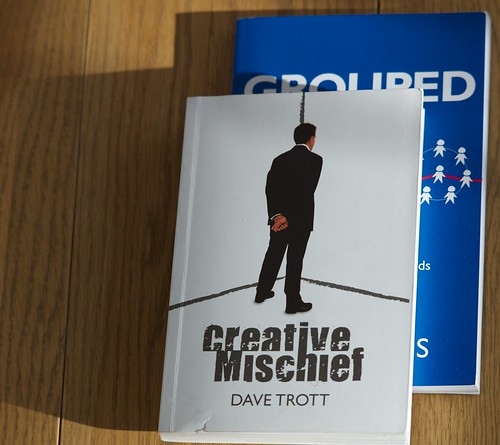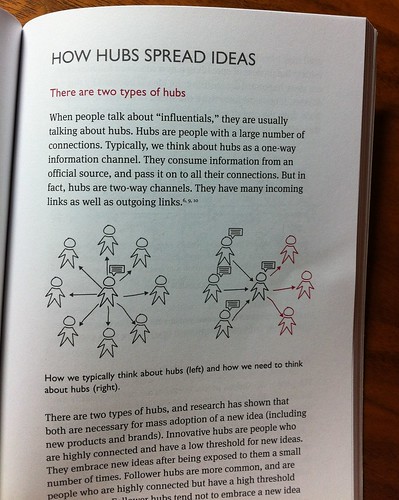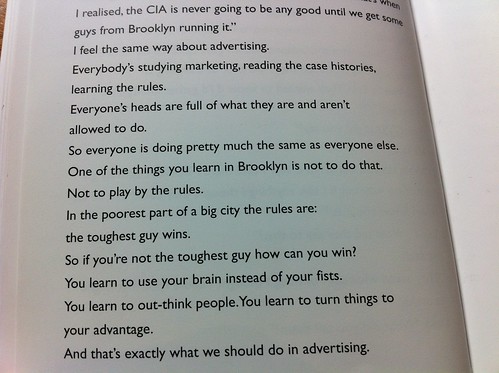
Reading Grouped and Creative Mischief at the same time made me realise that there are two main strands of thought about the future of advertising, marketing and media. They see the same phenomena but explain them with different stories.
Tyler Cowen would be proud of the sets of stories that these books tell as they project the world-views of their authors. The stories are too neat, too unambiguous and too polished to be true. However they're still educational. The difference in these two books is in the set of lessons they wish to teach us.
One book wants us to believe that the web is being rebuilt around people. Unfortunately its examples all come from one source so after a while you start to suspect he means the web is being rebuilt around Facebook. Grouped is about the benefits of homophily (being with people like you), about websites that use social proof to show their value and websites that use data from your friends to provide better services to you.
The other book wants you to believe that success in advertising (or anything else) is about your willingness to do the things that other people won't or can't. That may mean thinking thoughts others are afraid to think, seeking inspiration away from your peers and giving someone "the right answer even though you know he doesn't want it."
In Creative Mischief Dave Trott tries to teach the reader that "to be noticed, we need to do something different. To be different, we need to break the rules. To get away with breaking the rules, we need to be clever." In Trott's world "what seemed to be facts were only true if I subscribed to it being that way" and "the rules are meant to be a spring board, not a straitjacket."
His short book walks the reader through the last 4 decades of his escapades and his experiences in the advertising industry. It's fun and cheeky and insightful. It's also lacking in empirical data or research to back up his anecdotes. Adams, on the other hand, has all the data and the citations you could want.
The dichotomy between these differing viewpoints was summarised as Mad Men versus Math Men in a recent article. I think it captures something important about the gulf between researchers and storytellers. Storytellers believe it's more important to be inspiring than to be right. Most researchers disagree. Paul Adams is one of the few that sees the value of the storyteller's mode of communication. At the same time I think there's a dichotomy between a homophilous and a heterophilous view of the world.
In Adams's view we want to be nudged into making the same decisions as our close friends and families. He rejects the conventional marketer's search for influencers and tastemakers who can move the masses because
"even when there are influential people and specific situations where they can wield great influence over many others, finding them is so expensive that it becomes a poor investment compared to other available strategies."This is a world where 'social proof' is the most important thing. This is a world where "we’re only connected to people like us" so "it’s hard for ideas to pass between groups who are separated by dimensions like race, income, and education."

In Trott's view we want to be guided into making decisions that separate us from the herd. This is a world where every appeal to the wisdom of the crowd is countered by citing the danger of pluralistic ignorance.
I much prefer Trott's world because I believe the most valuable relationships are created by the differences between us rather than our similarities. In fact I've been maintaining a Tumblr devoted to the idea of heterophily for a while. I believe heterophily is one of the key ingredients in creating groups that are creative, fulfilling and productive. Despite this I still have to acknowledge that Adams's book is the one you should read if you're interested in improving the performance of your marketing campaigns or understanding the incipient social web. However Trott's book is the one you should read if you want to dream of a better and more interesting world.
